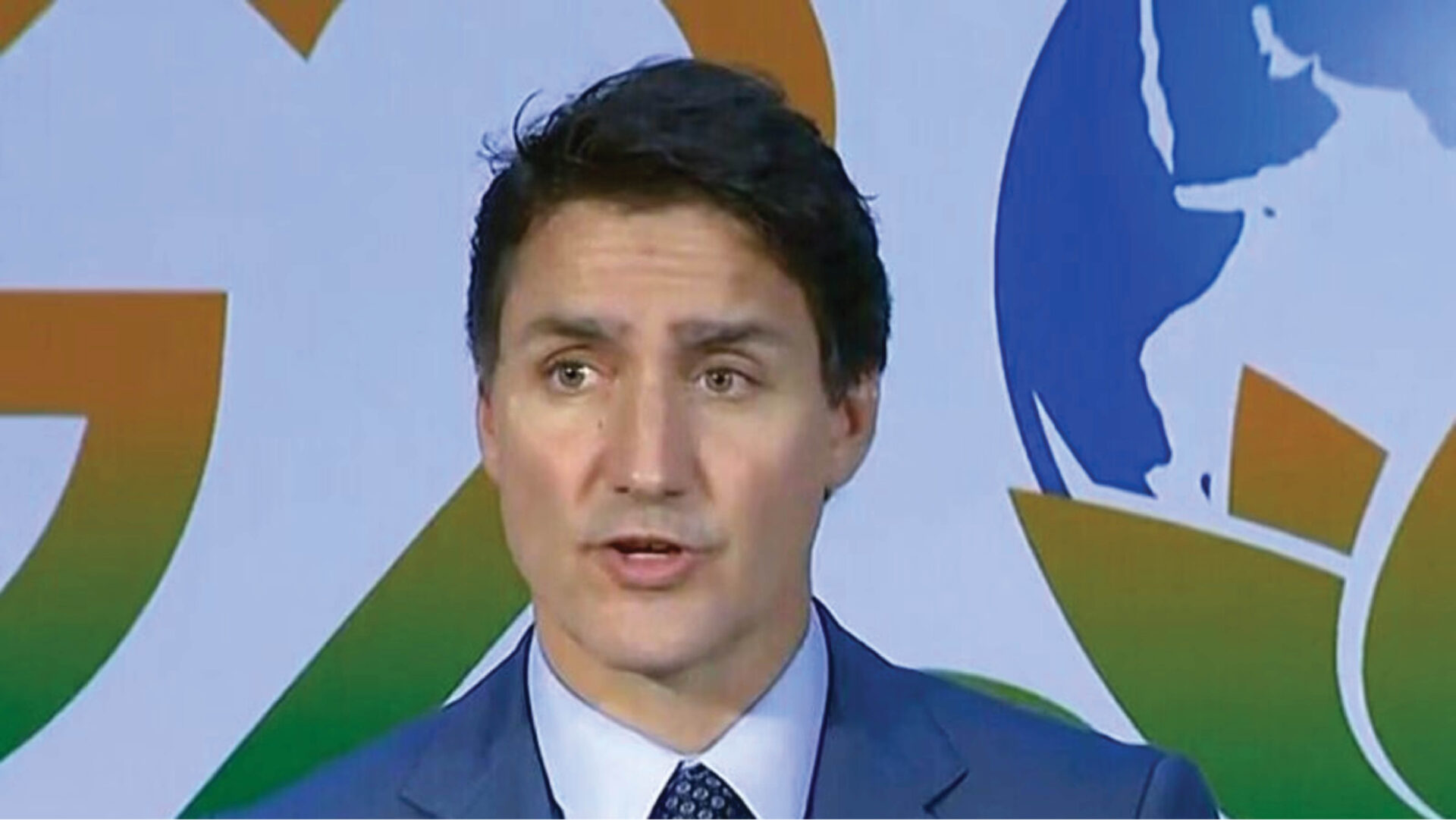We are now looking at a long winter in bilateral relations, Trudeau’s Canada has just become a greater nuisance for India.
Canadian Prime Minister Justin Trudeau’s dramatic and very public accusation against India puts him in a similar league as Pakistan, which is well known for its compulsive hostility towards India. Except that Canada is a liberal democracy and a friendly country. Or, so we thought until now.
Last Monday, Trudeau’s government made it more than clear that they are willing to sacrifice their bilateral relations with India on the altar of short sighted sectarian domestic politics. And Trudeau chose to do this most dramatically by announcing it in the Canadian parliament making it more than obvious that India is no longer on his list of friendly countries.
This is unprecedented between liberal democracies that have otherwise much in convergence—democracy, a parliamentary form of government, membership of the Commonwealth, friendly people-to-people relations, trade, and a lot of common friends, especially with the western bloc. Friendly countries sort out differences with discreetness and prudence all the time. But by going public, Trudeau is clearly seeking to appease and to consolidate his support base amongst the anti-India forces in his country. What else can explain his dislike bordering on hatred against India?
Like a true son, Trudeau is following on the footsteps of his father, Pierre Trudeau, who harboured similar misgivings against India. It is well known how in 1982 Prime Minister Pierre Trudeau turned down a request by Prime Minister Indira Gandhi’s government for extradition of Talwinder Singh Parmar, a pro-Khalistan Babbar Khalsa activist, wanted for killing two Punjab policemen at the height of terrorism in Punjab. Three years later, in June 1985, Parmar was involved in the horrific mid-air explosion of an Air India B747 aircraft while en route from Montreal to New Delhi. All 329 on board, 268 of them Canadian citizens, perished as the aircraft’s wreckage plunged into the icy waters of the Atlantic Ocean. Yet, it cut little ice with the Canadian authorities who remained economical in their investigation. So much for their belief in the “rule of law”.
An emboldened Parmar then began advocating the killing of 50,000 members of a particular community and threatened to make more Indian aircraft disappear from the sky. All this was permitted under the “right to free speech and expression” by a supposedly friendly country with shared values.
It is also not for the first time that Canada and India have expelled each other’s high commission staff. In his book, “Open Secrets”, M.K. Dhar, a former Intelligence Bureau officer once posted in the Indian High Commission in Ottawa, brings out how the Canadian government declared some RAW officials posted in the Indian High Commission in Ottawa and in the Indian consulates in Toronto and Vancouver as persona non grata during the 1980s when terrorism was its height in Punjab. Except that this was then done discreetly.
Over the years, ever since Sikhs from Punjab have numerically reached a critical mass in Canada, some Canadian political parties have increasingly begun playing sectarian vote bank politics, a malaise that is otherwise well entrenched in the Indian political system. Except that this has come at a huge cost to bilateral relations.
The expression of “concern” by the US and Australian governments comes from their longstanding relations with Canada as WASP (White Anglo-Saxon Protestant) nations and from being members of both the Echelon (a five-member Intelligence sharing group) and NATO. But as of now the West have publicly paid lip service to the Canadians and been discreet in their communication with India on this matter.
There is no doubt that New Delhi must continue to actively engage all major Western countries, its own friends and all of Canada’s allies on how Canada has turned into “a safe haven for terrorists, extremists and organised crime” and been “politically condoning hate crimes and criminal violence”.
We are now looking at a long winter in bilateral relations, Trudeau’s Canada has just become a greater nuisance for India. Anti-India voices by secessionist elements in Canada have been encouraged beyond repair by Trudeau’s immature public behaviour. This is evident from Trudeau’s political ally Jagmeet Singh Dhaliwal of the New Democratic Party, an India hater and Khalistan supporter, saying he will hold Prime Minister Narendra Modi to account. His comments were closely followed by a vitriolic demand by Gurpatwant Singh Pannu, another self-professed secessionist, whose pastime is holding referendums on Canadian soil for a Khalistan. He has demanded that all Hindus in Canada return to India. This is only the start. In one stroke, Trudeau has caused fissures in sections of a very large Indian diaspora (over 1.85 million or 5.1% of the population) in Canada. Expulsion of diplomats, India’s suspension of visa services for Canadian passport holders, downsizing of Canadian diplomatic missions in India are probably only the start of possibly more to come.
Trudeau has inflicted irreparable damage to bilateral relations which could take an extraordinarily long time to heal, if at all.
Also, sadly, one of the world’s most liberal democracies has just become more unsafe and encouraging of sectarianism. And it’s not in the Global South.
- Dinesh Kumar is a geopolitical analyst.

